 Expert's opinion
Expert's opinion
The article is a subjective view on this topic written by writers specializing in medical writing.
It may reflect on a personal journey surrounding struggles with an illness or medical condition, involve product comparisons, diet considerations, or other health-related opinions.
Although the view is entirely that of the writer, it is based on academic experiences and scientific research they have conducted; it is fact-checked by a team of degreed medical experts, and validated by sources attached to the article.
The numbers in parenthesis (1,2,3) will take you to clickable links to related scientific papers.
Best CBD Oil For Dementia 2024 – Top CBD Oil For Alzheimer’s
All articles are produced independently. When you click our links for purchasing products, we earn an affiliate commission. Learn more about how we earn revenue by reading our advertise disclaimer.
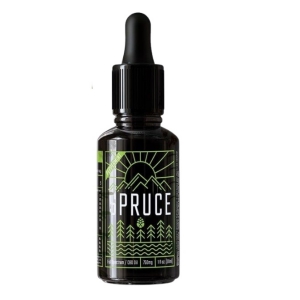
Spruce CBD
- Full-spectrum CBD
- Third-party lab tested
- 750mg or 2,400mg
15% Off Coupon: HEALTHCANAL
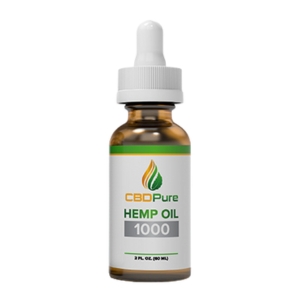
CBDPure
- Non-GMO
- Third-party lab
- Money-back guarantee
15% Off Coupon: HEALTHCANAL
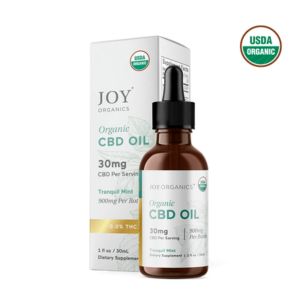
Joy Organics
- Broad-spectrum CBD oils
- Several flavors
- Free shipping
25% Off Coupon: HEALTHCANAL
As we get older, our bodies continue to change. Issues like stiff joints and chronic pain become an everyday reality and our bodies don’t recover as quickly as they once did. While some of the most noticeable consequences of aging are physical, there are mental effects as well. What many people don’t realize, however, is that deterioration in memory, thinking, and behavior isn’t a normal part of life. These are the hallmarks of dementia.
Dementia is a chronic, progressive syndrome characterized by deterioration in cognitive function. According to the World Health Organization (WHO), it affects as many as 50 million people around the world and there are nearly 10 million new cases each year.
There is no cure for dementia and research is ongoing to better understand its underlying causes and risk factors. In this article, we’ll explore the different types of dementia and how alternative therapies like cannabidiol (CBD) oil may be able to help you or a loved one manage dementia. Find out more about the best CBD oil for dementia here in this article.
The Best CBD Oil For Alzheimer’s And Dementia (April. 2024)
- Spruce CBD – Editor’s Pick
- CBDPure – Best Quality
- Joy Organics – Best Value
- Medterra – Best THC-free
- Plus CBD – Best Flavor
CBD For Dementia
The cause of dementia is unknown which makes treatment difficult. There is no current treatment known to treat dementia or alter its progressive course, but new treatments are constantly being developed and tested in clinical trials. For now, dementia treatment typically focuses on support measures to improve the quality of life for patients and their families.
Though CBD oil has not been proven to prevent, stop, or reverse dementia, the results of several research studies suggest it may provide health benefits in managing certain behavioral issues. CBD also offers anti-inflammatory, antioxidant, and anxiety-relieving benefits[1] which could be helpful for patients with various forms of dementia.
Read on to learn more about CBD oil for Alzheimer’s disease and other forms of dementia. You’ll also see our top picks for the best CBD oil.
Top 5 Best CBD Oil For Dementia Selections 2024
Spruce CBD
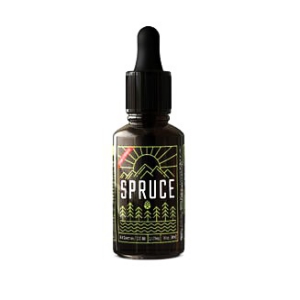
15% Off Coupon: HEALTHCANAL
When you need reliable relief, you need a high-quality product like Spruce CBD. Made with full-spectrum CBD oil, these products are pure and potent.
- Made with lab-grade full-spectrum CBD
- Third-party lab tested for purity and potency
- Choose from 750mg or 2,400mg
- Somewhat expensive compared to others
- Limited variety of products to choose from
Though Spruce CBD may only offer two standard CBD oils and one limited-edition flavor, you can trust their products to deliver purity and potency. Choose from a 750mg or 2,400mg concentration and rest easy knowing you’re getting 100% natural, lab-grade CBD. These oils have a natural flavor and are completely free from THC. Receive free shipping and save 15% when you subscribe for regular monthly deliveries.
CBDPure

15% Off Coupon: HEALTHCANAL
You and your loved ones don’t have to worry about any unnecessary ingredients or harmful additives with CBD Pure’s high-quality, organic CBD oil.
- Non-GMO organic hemp oil CBD
- Third-party lab tested for safety and purity
- Backed by 90-day money-back guarantee
- Limited variety of product choices
While some companies fill their products with artificial flavors and other additives, CBD Pure keeps them pure and simple. Their medical cannabis products are made with certified non-GMO organically grown hemp right from Colorado and Washington. Their oils are free from contaminants and, just to be sure you’re satisfied, they’re backed by a 90-day money-back guarantee. Every product is lab-tested for quality, purity, and potency as well.
Joy Organics
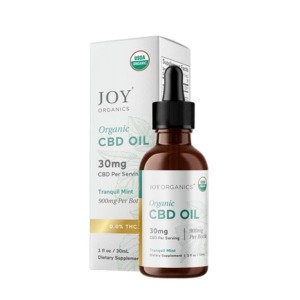
25% Off Coupon: HEALTHCANAL
Whether you’re new to CBD or not, it’s always nice to have the certainty that your product contains quality CBD oil and nothing more. That’s why you can trust Joy Organics.
- Organic broad-spectrum CBD oils
- Available in several flavors (and unflavored)
- Free shipping and money-back guarantee
- Some users may be confused by full vs broad spectrum
- Can be a little pricey compared to others
If you’re looking for a high-quality CBD oil, look no further than Joy Organics – especially if you want something completely free from THC. This company offers both full-spectrum and broad-spectrum CBD so you can get exactly what you want. Plus, their oils come in several different flavors, including an unflavored option. Everything is third-party lab lab-tested and backed by a money-back guarantee. You’ll even get free shipping!
Medterra
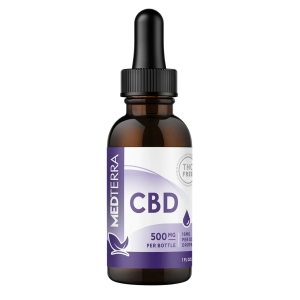
15% Off Coupon: HEALTHCANAL
Even if you’ve been using hemp products for a while and know what you like, it can always help to have a bit of variety when it comes time to shop. That’s where Medterra comes in.
- Available in several concentrations (up to 3,000mg)
- Broad-spectrum formulas are free from THC
- Wide variety of products to choose from
- Some may be confused about full vs broad spectrum
Medterra offers a wide variety of hemp CBD products including highly concentrated tinctures with up to 3,000mg of CBD. Their products are made with GMO-free, organically grown CBD made in the USA and everything is free from THC as well. Medterra CBD products are lab tested for safety and you can find Certificates of Analysis directly on the website.
Plus CBD
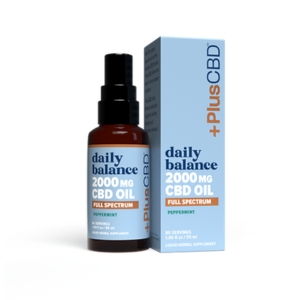
20% Off Coupon: HEALTHCANAL
Hemp oil has a distinct flavor that some people simply don’t like. If you’re looking for an unflavored option or something to mask the taste, go with Plus CBD.
- Available in several flavors (and unflavored)
- High-quality full-spectrum hemp CBD
- Choose from several different concentrations
- Can be a little pricey compared to others
Whether you’re struggling with Alzheimer’s symptoms or another type of dementia, CBD products may help alleviate pain, inflammation, and more. If you’re not sure you like the flavor of hemp oil, you’ll be glad to know Plus CBD offers a variety of flavors like Peppermint and Goji Berry – they also offer unflavored options. Plus CBD oils come in drops as well as sprays for easy administration and you can choose from a variety of concentrations.
What Is Dementia?
Dementia is a syndrome[2] rather than a disease. It is a general term for diseases that cause changes in cognition and memory severe enough to impact the individual’s daily function. Alzheimer’s disease (AD) is the most common form of dementia[3] – others include vascular dementia, Lewy body dementia (LBD), mixed dementia, and more.
The dementia symptoms vary from one patient to another but most forms of the disease lead to a gradual worsening of symptoms over time. These changes are caused by progressive damage to the nerve cells in the brain known as neurodegeneration. For the most part, we can divide these symptoms into three stages:
- Early Stage
- Middle Stage
- Late Stage
During the early stages of the disease, dementia patients typically experience a gradual onset of minor symptoms like forgetfulness or losing track of time. As the disease progresses, the symptoms become more noticeable and more restrictive. Dementia patients may become forgetful of names or recent events and may have increasing difficulty with communication and personal care. Some patients also experience behavioral changes like wandering.
In the late stages of dementia, patients often become dependent on others for care. Physical symptoms become more pronounced such as difficulty walking. Alzheimer’s patients and individuals with other forms of dementia eventually have difficulty recognizing friends and family and may develop behavioral and psychological symptoms[4] such as agitation and aggression. In many cases, death in dementia patients may occur due to another condition.
Types Of Dementia
The term dementia refers to loss of memory and cognitive decline caused by physical changes in the brain tissue and cells. There are many different types of dementia, though Alzheimer’s is the most common form. Alzheimer’s disease affects as many as 5 million people[5] and symptoms typically appear after age 60 and increase with age. This condition is characterized by degeneration of brain cells linked to a microscopic protein fragment called beta-amyloid.
Some of the other common forms of dementia include:
- Frontotemporal dementia
- Vascular dementia
- Huntington’s disease
- Parkinson’s disease
- Lewy body dementia
- Korsakoff syndrome
Frontotemporal dementia is characterized by progressive nerve cell loss in the frontal lobes of the brain or the temporal lobes. This condition typically causes progressive deficits in behavior,[6] language, or executive function. Vascular dementia, on the other hand, involves reduced or blocked blood flow to the brain[7] which causes a decline in cognition.
Huntington’s disease[8] is a progressive neurodegenerative disorder linked to a defective gene that causes changes in the central nervous system. Parkinson’s typically affects movement but eventually progresses to mental function. The brain changes linked to this disease are called Lewy bodies – they are microscopic deposits of abnormal protein[9] in the brain. Lewy body dementia is also linked to these brain abnormalities while Korsakoff syndrome is a disorder caused by a severe deficiency of vitamin B1 (thiamine).
In addition to these forms of dementia, some patients experience mixed dementia – a condition in which changes in the brain are caused by multiple factors. The most common form of mixed dementia[10] combines the abnormal protein deposits associated with Alzheimer’s disease with the blood vessel issues associated with vascular dementia.
CBD Oil Benefits For Alzheimer’s And Dementia
To understand the potential of CBD oil for Alzheimer’s patients and other types of dementia, you need to know the basics of how this substance works. Cannabidiol (CBD)[11] is a nonintoxicating compound extracted from the cannabis plant – specifically Cannabis sativa. This compound might offer a wide range of benefits linked to its impact on the endocannabinoid system (ECS) in humans.
The ECS plays the role of a “master regulator” in the body, impacting essential functions like metabolism and cellular communication while also helping the body maintain homeostasis. An increasing body of research suggests the ECS may regulate neurodegenerative processes[12] as well, including oxidative stress, glutamate production, and neuroinflammation. Because neurodegeneration is a common feature of dementia, it has led researchers to wonder whether cannabinoids like CBD may be beneficial in managing the effects of these diseases.
Reducing Oxidative Stress Damage
Cannabidiol is one of the primary active phytocannabinoids found in the cannabis plant. Though it doesn’t have the psychoactive effects of THC, it exerts a variety of beneficial pharmacological actions, namely anti-inflammatory and antioxidant properties. Though much of the scientific research conducted on the antioxidant effects of CBD has been related to cancer, scientists recognize its potential role in the prevention of neurodegenerative diseases.[13]
Oxidative stress[3] is a molecular mechanism shared among all types of dementia along with neuroinflammation and neurodegeneration. As such, the antioxidant properties of CBD could benefit Alzheimer’s patients and patients with other types of dementia. One study in particular[14] tested CBD’s ability to attenuate oxidative stress and reduce the generation of reactive oxygen species (ROS) in Alzheimer patients. CBD was found to suppress pro-inflammatory signaling in addition to reducing oxidative stress.
Reducing Inflammation
Cannabinoids like CBD and THC act directly on the endocannabinoid system and, in doing so, play a role in the release of neurotransmitters and impact various biological processes. One of these processes is the body’s inflammatory response. Specifically regarding neurodegenerative diseases, CBD has been studied for its potential therapeutic applications in relieving neuroinflammation.
According to a review[15] published in the British Journal of Clinical Pharmacology, the anti-inflammatory benefits of cannabidiol make it an interesting option in the treatment of neuroinflammation. Furthermore, its combination of anti-inflammatory and antioxidant properties offers strong neuroprotective potential, particularly regarding neurodegenerative disorders.
Promoting Brain Cell Growth (Neurogenesis)
Neurodegeneration is the hallmark of dementia and it is progressive. Though no cure for dementia has yet been found, scientists are studying potential treatments that may slow or even reverse neurodegeneration through the process of neurogenesis.[16] Neurogenesis is the process through which new neurons are formed in the brain. Generation of these brain cells is particularly important during embryonic development but continues in certain parts of the brain throughout life.
Two in-vitro studies in mice[17] support the use of CBD to stimulate neurogenesis. In these studies, CBD supported neurogenesis in the hippocampus, the part of the brain that plays a major role in learning and memory. In a scientific review published in 2016,[18] researchers found support for the neuroprotective benefits of CBD in humans along with its potential to facilitate neurogenesis. More research is needed to study these effects.
Regimen For CBD Usage
If you’re considering CBD for yourself or a loved one, it’s important to find the right dose. There is no standard dose of CBD, however, so it can be tricky. Here are our recommendations:
Daily Maintenance
When using cannabidiol for daily symptom management, it’s generally best to start at a low dosage. What constitutes a low dose is generally determined by your weight – about 10mg per 100 pounds of body weight is a good place to start. Pay attention to your behavioural symptoms over the first 7 days of taking the CBD then consider increasing the dose if you aren’t seeing the results you want. Increase by 1 to 2 mg every three days until you find the proper dose.
Managing Flare-Ups
With chronic and progressive conditions, flare-ups are always a possibility. Once you’ve established your ideal daily dosage of CBD, you may find you need to take a little more on some days to manage flare-ups. Again, you may want to keep the increase minimal until you can discern the effects on your body.
Finding the right dose of CBD is often a matter of trial and error, so be patient. Talk to your doctor about where to start and check in often about your symptoms until you find the right dose that works for you.
Does CBD Affect Memory?
If you’re considering using CBD products to manage symptoms of Alzheimer’s patients, you may be wondering about the risks. After all, marijuana use has been associated with short-term memory loss,[19] and the last thing dementia and Alzheimer patients need is more loss of memory. Some researchers suggest this has more to do with the THC content, however, than CBD.
The good news is CBD hasn’t been associated with memory loss and its potential neuroprotective benefits could even improve various aspects of cognitive function including memory. In one study[20] researchers found that CBD treatment continued over 8 months helped prevent the development of social recognition memory deficits in mice. Whether these benefits translate to humans is unclear. At this time, there isn’t sufficient scientific evidence to say whether CBD has a positive impact on memory. That being said, there also isn’t significant evidence to suggest that it has a negative impact either. Talk to your doctor before taking the best CBD oil for dementia & Alzheimer’s symptoms like memory loss, just to be safe.
Frequently Asked Questions
No, there is currently no treatment for neurodegenerative diseases in this category that has been shown to stop or reverse the condition.
Numerous research studies show potential for CBD as a treatment to help manage various symptoms of Alzheimer’s but none have been shown to cure or prevent the disease.
There is no standard dosage for CBD, so talk to your doctor about the best dose to manage your symptoms. Be sure to check the concentration of the product and follow the dosing recommendations.
CBD is safe in daily doses of up to 1,500mg. Side effects are infrequent and mild, generally limited to nausea, drowsiness, and changes in weight or appetite.
+ 20 sources
Health Canal avoids using tertiary references. We have strict sourcing guidelines and rely on peer-reviewed studies, academic researches from medical associations and institutions. To ensure the accuracy of articles in Health Canal, you can read more about the editorial process here
- Blessing, E., Steenkamp, M.M., Manzanares, J. and Marmar, C.R. (2015). Cannabidiol as a Potential Treatment for Anxiety Disorders. Neurotherapeutics, [online] 12(4), pp.825–836. doi:https://doi.org/10.1007/s13311-015-0387-1.
- Gale, S.A., Acar, D. and Daffner, K.R. (2018). Dementia. The American Journal of Medicine, [online] 131(10), pp.1161–1169. doi:https://doi.org/10.1016/j.amjmed.2018.01.022.
- Raz, L., Knoefel, J.E. and Bhaskar, K. (2015). The neuropathology and cerebrovascular mechanisms of dementia. Journal of Cerebral Blood Flow and Metabolism, [online] 36(1), pp.172–186. doi:https://doi.org/10.1038/jcbfm.2015.164.
- Joaquim Cerejeira, L. Lagarto and Mukaetova‐Ladinska, E.B. (2012). Behavioral and Psychological Symptoms of Dementia. Frontiers in Neurology, [online] 3. doi:https://doi.org/10.3389/fneur.2012.00073.
- Anon, (2023). What is Alzheimer’s Disease? [online] Available at: https://www.cdc.gov/aging/aginginfo/alzheimers.htm.
- Bang, J., Spina, S. and Miller, B.L. (2015). Frontotemporal dementia. The Lancet, [online] 386(10004), pp.1672–1682. doi:https://doi.org/10.1016/s0140-6736(15)00461-4.
- Costantino Iadecola (2013). The Pathobiology of Vascular Dementia. Neuron, [online] 80(4), pp.844–866. doi:https://doi.org/10.1016/j.neuron.2013.10.008.
- Raymund A.C. Roos (2010). Huntington’s disease: a clinical review. Orphanet Journal of Rare Diseases, [online] 5(1). doi:https://doi.org/10.1186/1750-1172-5-40.
- Gomperts, S.N. (2016). Lewy Body Dementias. Continuum, [online] 22(2, Dementia), pp.435–463. doi:https://doi.org/10.1212/con.0000000000000309.
- Langa, K.M., Foster, N.L. and Larson, E.B. (2004). Mixed Dementia. JAMA, [online] 292(23), pp.2901–2901. doi:https://doi.org/10.1001/jama.292.23.2901.
- VanDolah, H., Bauer, B.A. and Mauck, K.F. (2019). Clinicians’ Guide to Cannabidiol and Hemp Oils. Mayo Clinic Proceedings, [online] 94(9), pp.1840–1851. doi:https://doi.org/10.1016/j.mayocp.2019.01.003.
- Krishnan, S., Cairns, R. and Howard, R. (2009). Cannabinoids for the treatment of dementia. The Cochrane library. [online] doi:https://doi.org/10.1002/14651858.cd007204.pub2.
- Federica Pellati, Vittoria Borgonetti, Brighenti, V., Biagi, M., Benvenuti, S. and Corsi, L. (2018). Cannabis sativa L. and Nonpsychoactive Cannabinoids: Their Chemistry and Role against Oxidative Stress, Inflammation, and Cancer. BioMed Research International, [online] 2018, pp.1–15. doi:https://doi.org/10.1155/2018/1691428.
- Alexandre Vallée, Yves Lecarpentier, Rémy Guillevin and Jean-Noël Vallée (2017). Effects of cannabidiol interactions with Wnt/β-catenin pathway and PPARγ on oxidative stress and neuroinflammation in Alzheimer’s disease. Acta Biochimica et Biophysica Sinica, [online] 49(10), pp.853–866. doi:https://doi.org/10.1093/abbs/gmx073.
- Fernández‐Ruiz, J., Sagredo, O., M. Ruth Pazos, Concepción Garcı́a, Pertwee, R.G., Mechoulam, R. and José Martı́nez-Orgado (2013). Cannabidiol for neurodegenerative disorders: important new clinical applications for this phytocannabinoid? British Journal of Clinical Pharmacology, [online] 75(2), pp.323–333. doi:https://doi.org/10.1111/j.1365-2125.2012.04341.x.
- Guo Li Ming and Song, H. (2011). Adult Neurogenesis in the Mammalian Brain: Significant Answers and Significant Questions. Neuron, [online] 70(4), pp.687–702. doi:https://doi.org/10.1016/j.neuron.2011.05.001.
- Esposito, G., Scuderi, C., Valenza, M., G. Togna, Latina, V., Daniele De Filippis, Cipriano, M., Maria Rosaria Carratú, Iuvone, T. and Luca Steardo (2011). Cannabidiol Reduces Aβ-Induced Neuroinflammation and Promotes Hippocampal Neurogenesis through PPARγ Involvement. PLOS ONE, [online] 6(12), pp.e28668–e28668. doi:https://doi.org/10.1371/journal.pone.0028668.
- Campos, A.C., Fogaça, M.V., Andreza Buzolin Sonego and Francisco Silveira Guimarães (2016). Cannabidiol, neuroprotection and neuropsychiatric disorders. Pharmacological Research, [online] 112, pp.119–127. doi:https://doi.org/10.1016/j.phrs.2016.01.033.
- Ranganathan, M. and Deepak Cyril D’Souza (2006). The acute effects of cannabinoids on memory in humans: a review. Psychopharmacology, [online] 188(4), pp.425–444. doi:https://doi.org/10.1007/s00213-006-0508-y.
- Cheng, D., Spiro, A.S., Jenner, A., Garner, B. and Karl, T. (2014). Long-Term Cannabidiol Treatment Prevents the Development of Social Recognition Memory Deficits in Alzheimer’s Disease Transgenic Mice. Journal of Alzheimer’s Disease, [online] 42(4), pp.1383–1396. doi:https://doi.org/10.3233/jad-140921.



